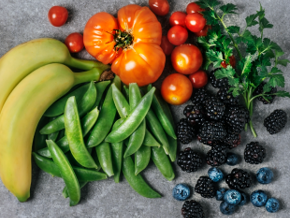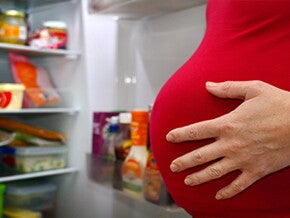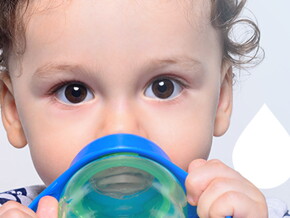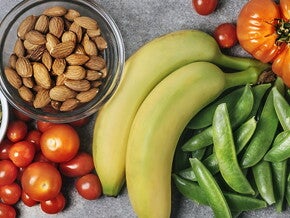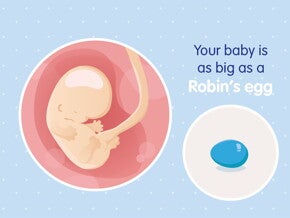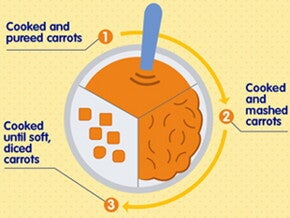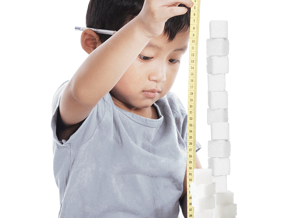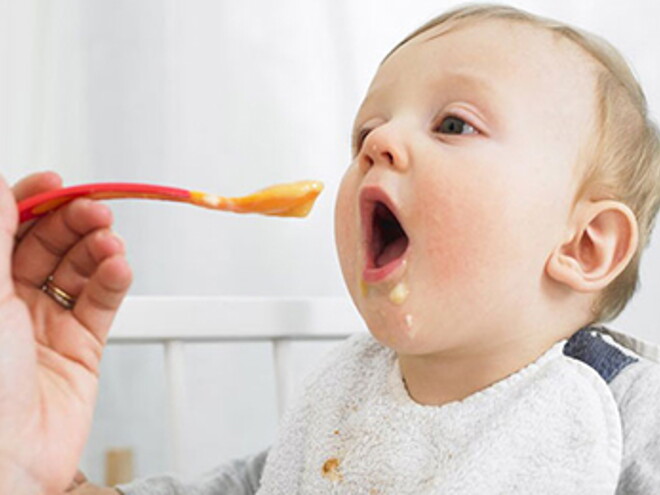
The World Health Organization recommends the introduction of solid foods at 6 months. It will also depend on the individual baby and their signs of readiness. Where possible, mothers should continue to breastfeed during and after starting solids. The age of your baby is one indication that your baby will be ready for starting solids, there are also a number of other visual cues to look out for.
Cues that your baby is ready for solids may include any of the following:
- Your baby showing an interest in food, including what’s on your plate – babies might also start putting their fingers in their mouths.
- You’ve noticed an increased appetite and the want for more milk at the end of a breastfeed.
- Your baby is opening their mouth when food is offered on a spoon.
- Your baby has good head and neck control, and the ability to sit upright when supported.
If your baby is not showing these readiness signs and you are worried their appetite, growth and development are not progressing normally, it is advisable to seek advice from your doctor or dietitian.
Do not force:
This is one of the most important stages of growing up. Good nutrition will play an important role in their entire life so it is important to start them on the right track from the beginning and let it happen at a natural pace.
Starting solids too early (<6 months):
- Your baby may be at greater risk of unsafe swallowing, as they may not be developmentally ready.
- Solid food may displace some of their nutrient dense breast milk, which is needed to maintain growth and development;
- There may be an increased risk of developing food allergies and intolerance as a baby’s immune system is still developing;
- May result in changes in stool consistency if your baby is not able to digest these more complex foods yet.
Starting solids too late (>7 months):
- The baby doesn’t get enough food needed to fulfil their increasing needs;
- It might affect their growth and development;
- The chances of malnutrition and micronutrient deficiencies increase – particularly for iron and zinc;
- Skills such as chewing may be delayed;
- You may miss the window where they are willing to try new tastes and textures.
Developmental stages of eating
There is much more to starting solids than simply being ready to chew and swallow foods.
Your baby will progress through many stages of eating development.
These stages may include tolerating a range of foods and meals with different:
- Textures – rough, slimy, crunchy, fibrous
- Tastes - such as bitter, sour, salty, sweet, savoury
- Consistencies - runny, thick, chunky
- Smells – stronger and milder smells
- Temperature – warm, cold, icy
- Appearance – all food looks foreign to children to begin with, just as when we visit a different country with foreign food, it’s normal for children to be a little apprehensive at first
- Thirst – comparing to hunger
- Chewing
- Amount of food on the spoon
- Sizes of the meal
- Times between meals.
When eating development goes smoothly you may not even notice these changes happening, however if it is less smooth – then the above become more important to watch out for. Notice which developments they are lacking and working on that skill in particular can prevent a lot of frustration.
Even easy feeding babies can refuse foods at times for various reasons, just know that food introductions are supposed to be a learning curve for both baby and parent.
It is considered normal for babies to learn to walk between 8-20 months with many tumbles and falls along the way. Learning to eat a variety of foods is much the same, and it will take time to master.
